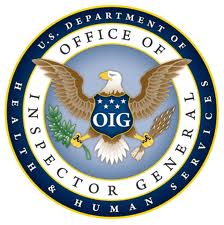Healthcare Providers and Self-Disclosure of Violations
 The healthcare industry has a long history of innovative compliance policies and strategies. The government’s role in the healthcare industry is going to grow even more after 2014, when a number of Obamacare provisions are triggered. For healthcare companies, regulation and enforcement will increase.
The healthcare industry has a long history of innovative compliance policies and strategies. The government’s role in the healthcare industry is going to grow even more after 2014, when a number of Obamacare provisions are triggered. For healthcare companies, regulation and enforcement will increase.
The government’s enforcement programs are focused on civil False Claims Act cases and criminal fraud cases. The government’s success in both of these areas has been the hallmark of this Administration.
The HHS-OIG has tried to build a strong voluntary disclosure program to supplement its enforcement program. The existing disclosure program has never been very successful Only around 800 disclosures have been made over the past 15 years.
One of the explanations for its failure to take hold is the need to secure the Justice Department’s sign off on any resolution. Companies that participate in the program have no guarantees that the Justice Department will not launch a criminal case after reviewing a voluntary disclosure application.
In an attempt to enhance its voluntary disclosure program, HHS-OIG recently modified its voluntary disclosure procedures. The new rules are unlikely to increase the number of voluntary self-disclosures. The only real benefit of the new rules is the hope that a company can avoid a burdensome integrity agreement by submitting a voluntary disclosure application.

The new rules modify the eligibility requirements for self-disclosure; shorten the timeline for conducting an internal investigation; and clarify the guidelines for disclosures relating to false billing, excluded persons, anti-kickback and Stark law violations.
The self-disclosure process is available to all healthcare providers, suppliers, or other entities subject to civil monetary penalties, except for violations involving only Stark law violations. In making a disclosure, a party now must admit that the conduct is a potential violation, identify the laws involved, agree to waive the statute of limitations, and ensure that corrective actions are being carried out or the misconduct ceased by the date of the disclosure, or no later than ninety days after disclosure of a kickback violation.
A disclosing party now will have to complete its internal investigation within ninety days of the initial submission as opposed to the prior rule of ninety days from the date of acceptance of the submission. The new rules set forth eleven specific information requirements to be included for all submissions, including background information, estimate of damages, and a concise statement of facts relating to the conduct, the detail of which depend on the conduct involved (e.g. false billing, excluded persons, or violations of the AKS or Stark law.
The new rules also establish minimum settlement amounts – for AKS violations, $50,000, and $10,000 for all other violations. Also, HHS-OIG will now explicitly rely on a multiplier of 1.5 for “damages” tied to the remuneration involved in an AKS or Stark law violation.
 Finally, the new rules include confirmation that the Department of Justice will participate in the settlement of civil and criminal violations, and that HHS-OIG will advocate on behalf of the party in such discussions. This could raise significant complications and potential criminal exposure for the company and individuals who may be identified in the disclosure process. In many cases, HHS-OIG cannot protect a provider or individuals from DOJ prosecution, and specific statements made in the disclosure process could be used against the company.
Finally, the new rules include confirmation that the Department of Justice will participate in the settlement of civil and criminal violations, and that HHS-OIG will advocate on behalf of the party in such discussions. This could raise significant complications and potential criminal exposure for the company and individuals who may be identified in the disclosure process. In many cases, HHS-OIG cannot protect a provider or individuals from DOJ prosecution, and specific statements made in the disclosure process could be used against the company.















